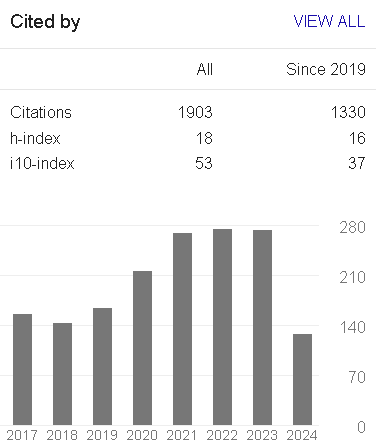A Survey on Various Candidate Generator Methods for Efficient String Transformation
Keywords:
candidate generation, string transformation, spelling error correctionAbstract
String Transformation can be formalized such as given an input string; the system generates the k most likely output strings corresponding to the input string. The essential and important step for string transformation is to generate candidates to which the given string s is likely to be transformed. The different approaches and various candidate generator methods for efficient string transformation are discussed in this paper.
References
Ziqi Wang, Gu Xu, Hang Li, and Ming Zhang, "A Probabilistic Approach to String Transformation", IEEE transactions on knowledge and data engineering, VOL:PP NO:99, 2013.
Behm .A, S. Ji, C. Li, and J. Lu, ― Space-constrained grambased indexing for efficient approximate string search,‖ ICDE ’09. IEEE Computer Society, pp. 604–615, 2009.
Brill E. and R. C. Moore, ―An improved error model for noisy channel spelling correction,‖ ACL ’00. Morristown, NJ, USA: Association for Computational Linguistics, pp. 286–293, 2000.
Chen Q, M. Li, and M. Zhou, ―Improving query spelling correction using web search results,‖ EMNLP ’07, pp. 181–189, 2007.
Dreyer .M, J. R. Smith, and J. Eisner, ―Latent-variable modeling of string transductions with finite-state methods,‖EMNLP ’08, Association for Computational Linguistics, pp.1080–1089, 2008.
Duan.H and B.-J. P. Hsu, ―Online spelling correction for query completion,‖ WWW’11. ACM, pp. 117–126, 2011.
Guo .J, G. Xu, H. Li, and X. Cheng, ―A unified and discriminative model for query refinement,‖ SIGIR ’08. ACM, pp. 379–386, 2008.
Hadjieleftheriou.M and C. Li, ―Efficient approximate search on string collections,‖ Proc. VLDB Endow., vol. 2, pp.1660–1661, August 2009.
McCallum A., K. Bellare, and F. Pereira, ―A conditional random field for discriminatively-trained finite-state string edit distance,‖ in Proceedings of the 21st Conference on Uncertainty in Artifical Intelligence, ser. UAI ’05, pp. 388–395, 2005.
Okazaki .N, Y. Tsuruoka, S. Ananiadou, and J. Tsujii, ―A discriminative candidate generator for string transformations‖ EMNLP ’08, Association for Computational Linguistics, pp. 447–456, 2008.
Tejada .S, C. A. Knoblock, and S. Minton, ―Learning domain independent string transformation weights for high accuracy object identification,‖ KDD ’02. ACM, pp. 350–359, 2008.
Yang Y., J. Yu, and M. Kitsuregawa, ―Fast algorithms for top-k approximate string matching,‖ in Proceedings of the Twenty-Fourth AAAI Conference on Artificial Intelligence, ser. AAAI ’10, pp.1467–1473.
Downloads
Published
How to Cite
Issue
Section
License
Copyright (c) 2014 COMPUSOFT: An International Journal of Advanced Computer Technology

This work is licensed under a Creative Commons Attribution 4.0 International License.
©2023. COMPUSOFT: AN INTERNATIONAL OF ADVANCED COMPUTER TECHNOLOGY by COMPUSOFT PUBLICATION is licensed under a Creative Commons Attribution 4.0 International License. Based on a work at COMPUSOFT: AN INTERNATIONAL OF ADVANCED COMPUTER TECHNOLOGY. Permissions beyond the scope of this license may be available at Creative Commons Attribution 4.0 International Public License.


